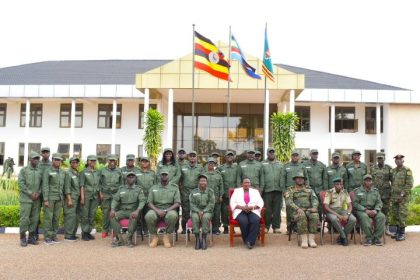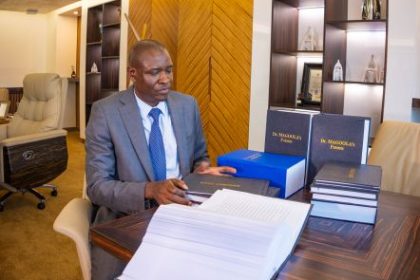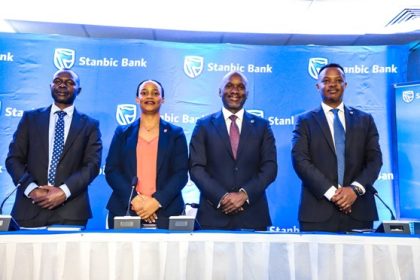Uganda signs USD150m finance agreement with BADEA for private sector growth

The Arab Bank for Economic Development in Africa (BADEA) has signed two facility agreements totaling USD 150 million with the Government of Uganda to bolster private sector development. The agreements were signed by BADEA President H.E. Abdullah ALMUSABEEH and Uganda’s Minister of Finance, H.E. Matia Kasaija, during the 41st TDB Group Board of Governors meeting in Kigali.
The financing includes USD 100 million under BADEA’s Private Sector window to support lending through the Uganda Development Bank Limited (UDB) to key sectors such as agro-processing, manufacturing, infrastructure, health, and education. The remaining USD 50 million, under the Public Sector window, targets micro, small, and medium enterprises (MSMEs), with a focus on agriculture, industry, infrastructure, and social sectors.
“This is a prime example of leveraging both public and private sector financing to drive economic development,” said ALMUSABEEH.
Dr. Patricia Adongo Ojangole, Managing Director of UDB, praised the deal for strengthening MSMEs and enhancing sustainable economic growth. Minister Kasaija commended BADEA for expanding its financial support beyond public infrastructure to include private sector empowerment.
Since inception, BADEA and its partners have committed around USD 2.5 billion to Uganda across sectors such as health, education, and transport.
BADEA, a multilateral development finance institution owned by 18 Arab states, focuses on socio-economic growth in Sub-Saharan Africa. UDB, Uganda’s national DFI, aligns its efforts with the country’s National Development Plan IV, prioritizing agriculture, industry, and services.
The agreement with Uganda, follows a similar deal between BADEA and Shelter Afrique Development Bank (ShafDB) on Thursday, under which the Arab lender will lend USD120 million in concessional financing to support the bank’s transformative capital increase programme.
The deal aims to strengthen the balance sheet of Shelter Afrique Bank by enabling eligible member states—including Uganda—to settle arrears and scale up their capital subscriptions. While Uganda is not a direct party to the BADEA agreement, Kampala is expected to benefit from the broader facility as part of its shareholder obligations to the regional housing development institution.
Under the arrangement, BADEA will on-lend to ShafDB’s shareholder governments on concessional terms. This mechanism is intended to enhance participation in the capital increase programme approved by Shelter Afrique’s board in December 2024, and formally endorsed by member states during the Annual General Meeting held in Kigali in June 2024.
ShafDB Managing Director Thierno Habib-Hann described the BADEA partnership as “a critical step in strengthening our capital base and advancing our mission to finance affordable housing and sustainable urban infrastructure across Africa.”
The $120 million financing facility will be disbursed in phases, with an initial equal allocation to all member states, followed by a reallocation on a pro-rata basis, and then on a first-come, first-served approach to incentivise timely uptake.
BADEA President H.E. Abdullah KH ALMUSAIBEEH noted that the partnership reflects BADEA’s long-term commitment to inclusive urban development: “We see this capital programme as a strategic milestone in Shelter Afrique’s evolution, and we are proud to support this vision for affordable housing across Africa.”
The capital increase effort is expected to enhance ShafDB’s leverage, attract institutional investors, and unlock new financing streams for national housing strategies. For Uganda and other shareholder countries, the programme presents a timely opportunity to increase equity participation and draw on Shelter Afrique’s technical and financial expertise to address acute housing deficits.


 Government reaffirms commitment to capitalise UDB as Bank deepens development finance role
Government reaffirms commitment to capitalise UDB as Bank deepens development finance role
 Uganda’s DEI Biopharma gene therapy breakthrough could transform sickle cell treatment
Uganda’s DEI Biopharma gene therapy breakthrough could transform sickle cell treatment
 Equity Bank Uganda set to close 2025 on firmer footing as clean-up phase gives way to growth
Equity Bank Uganda set to close 2025 on firmer footing as clean-up phase gives way to growth
 Stanbic targets wider access to affordable financing with ‘Oli In Charge’ campaign
Stanbic targets wider access to affordable financing with ‘Oli In Charge’ campaign
 USA–Canada certification dispute could expose Uganda and regional airlines to regulatory risk
USA–Canada certification dispute could expose Uganda and regional airlines to regulatory risk
 Sumsub launches AI Agent Verification as Africa grapples with surge in AI-driven fraud
Sumsub launches AI Agent Verification as Africa grapples with surge in AI-driven fraud